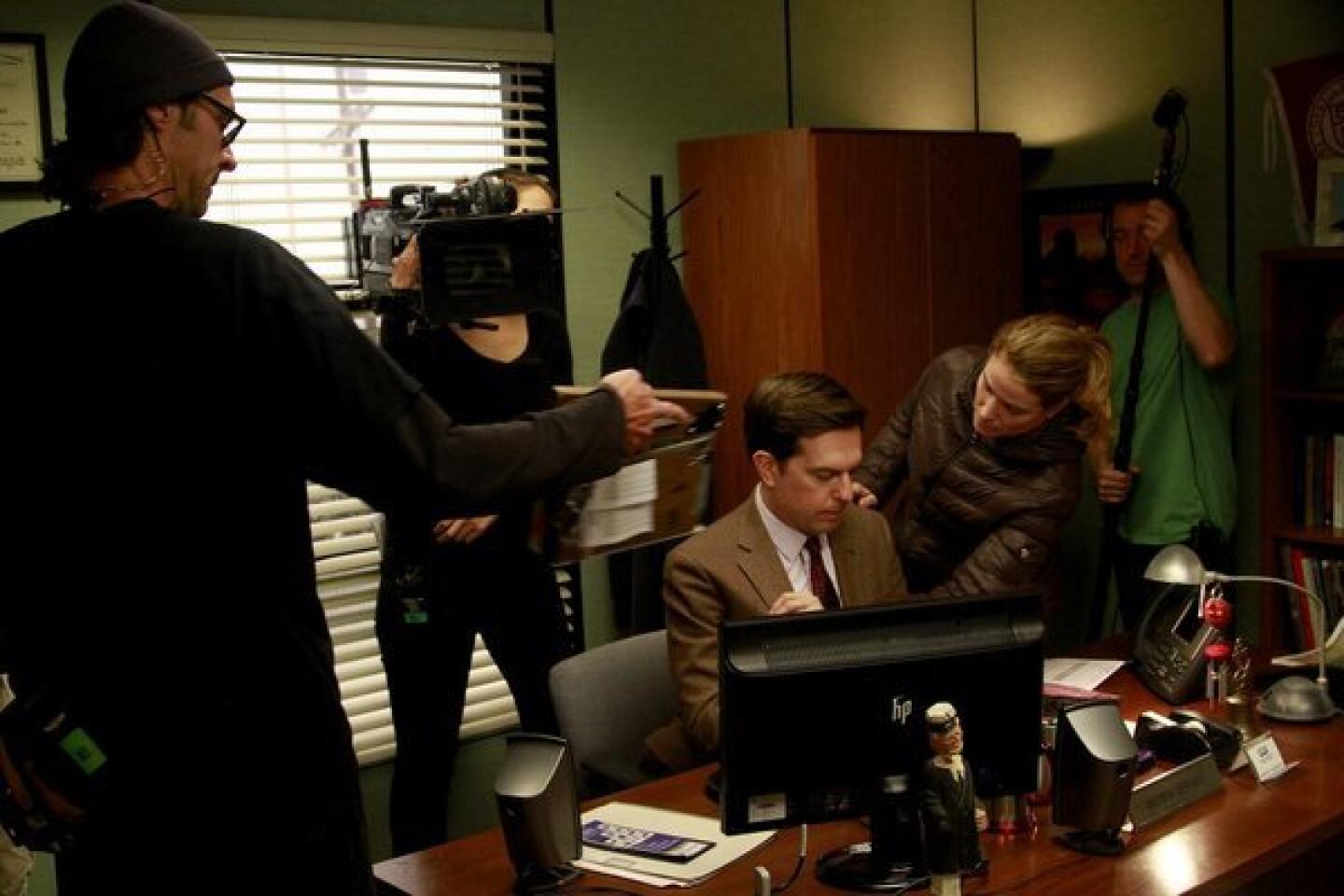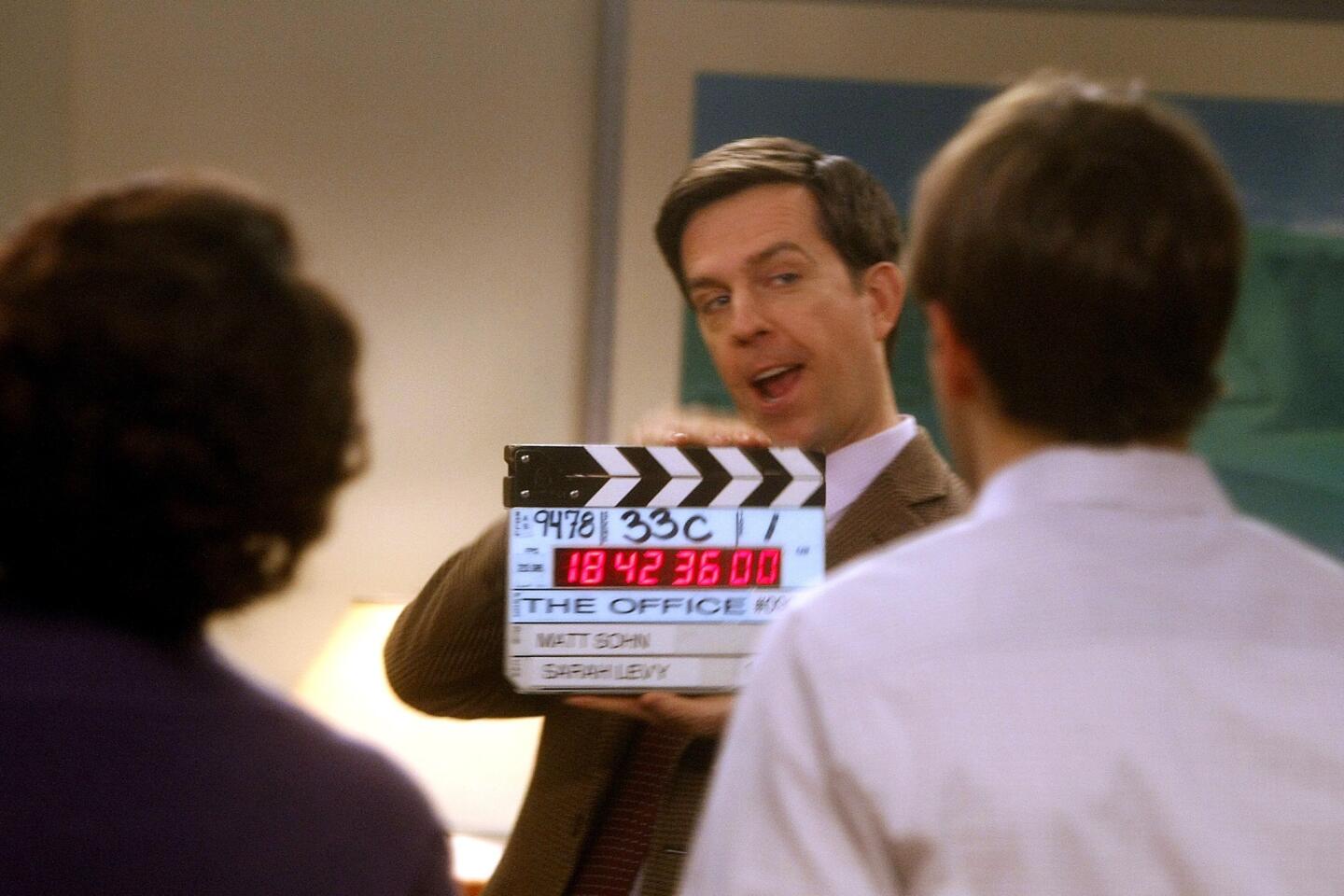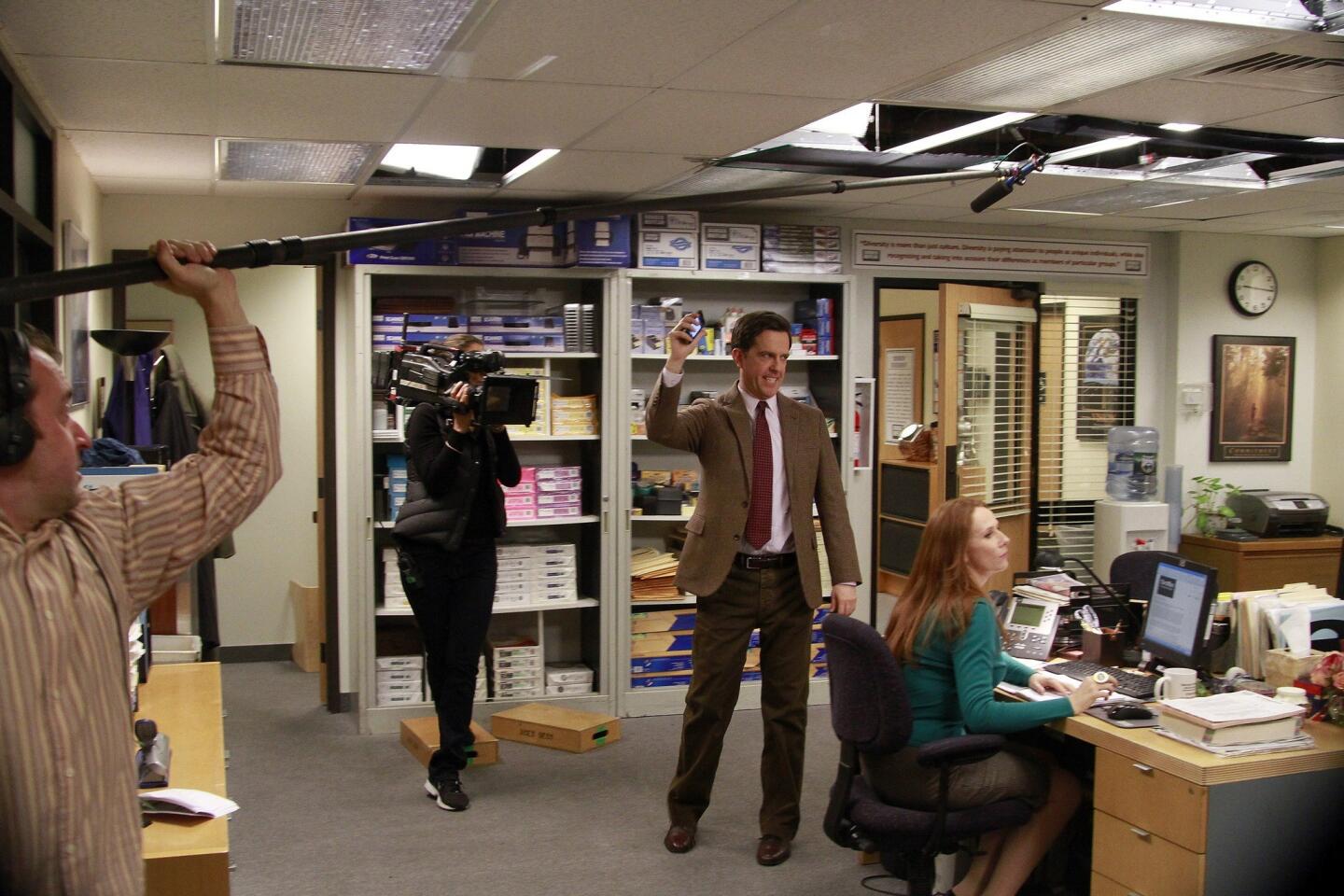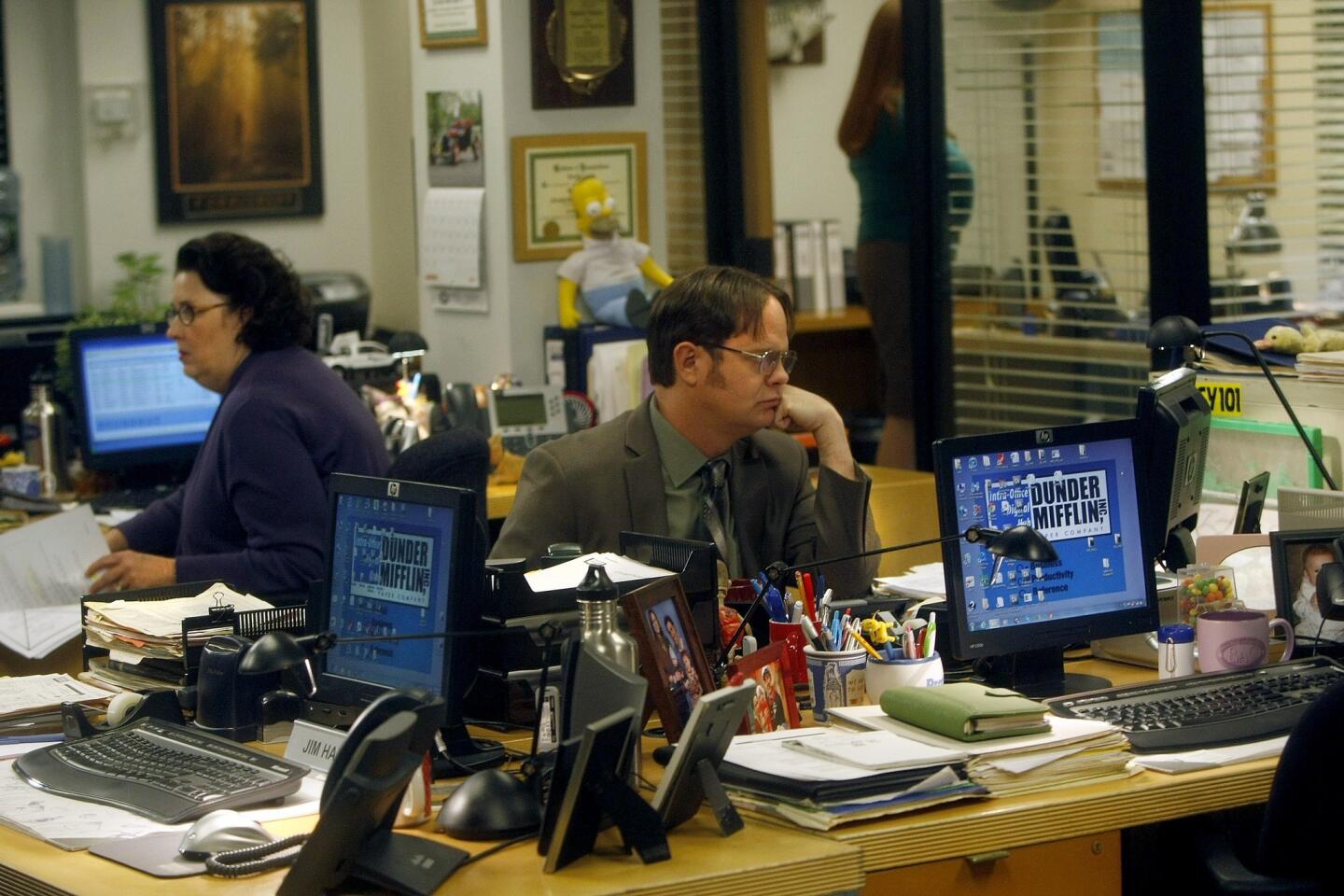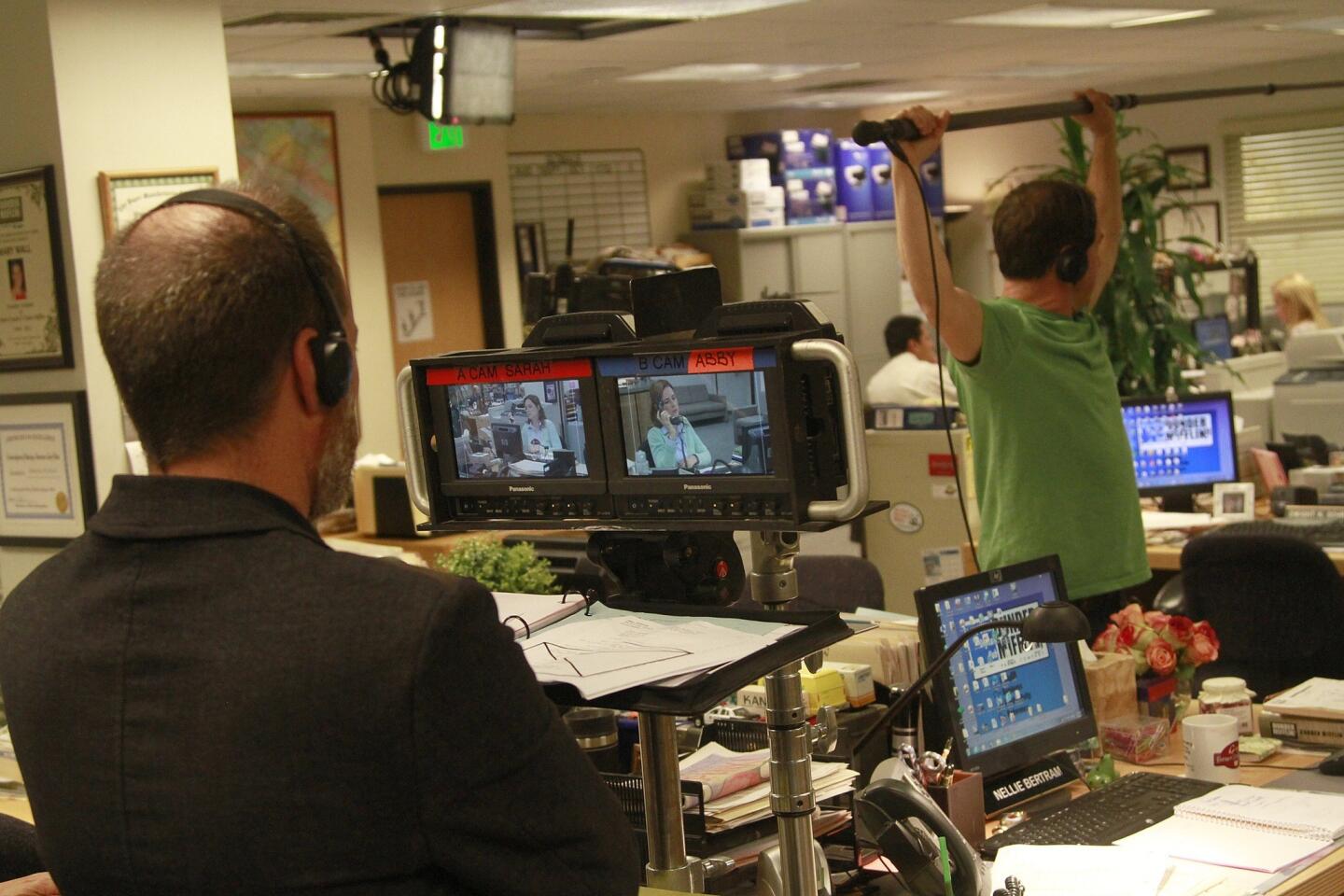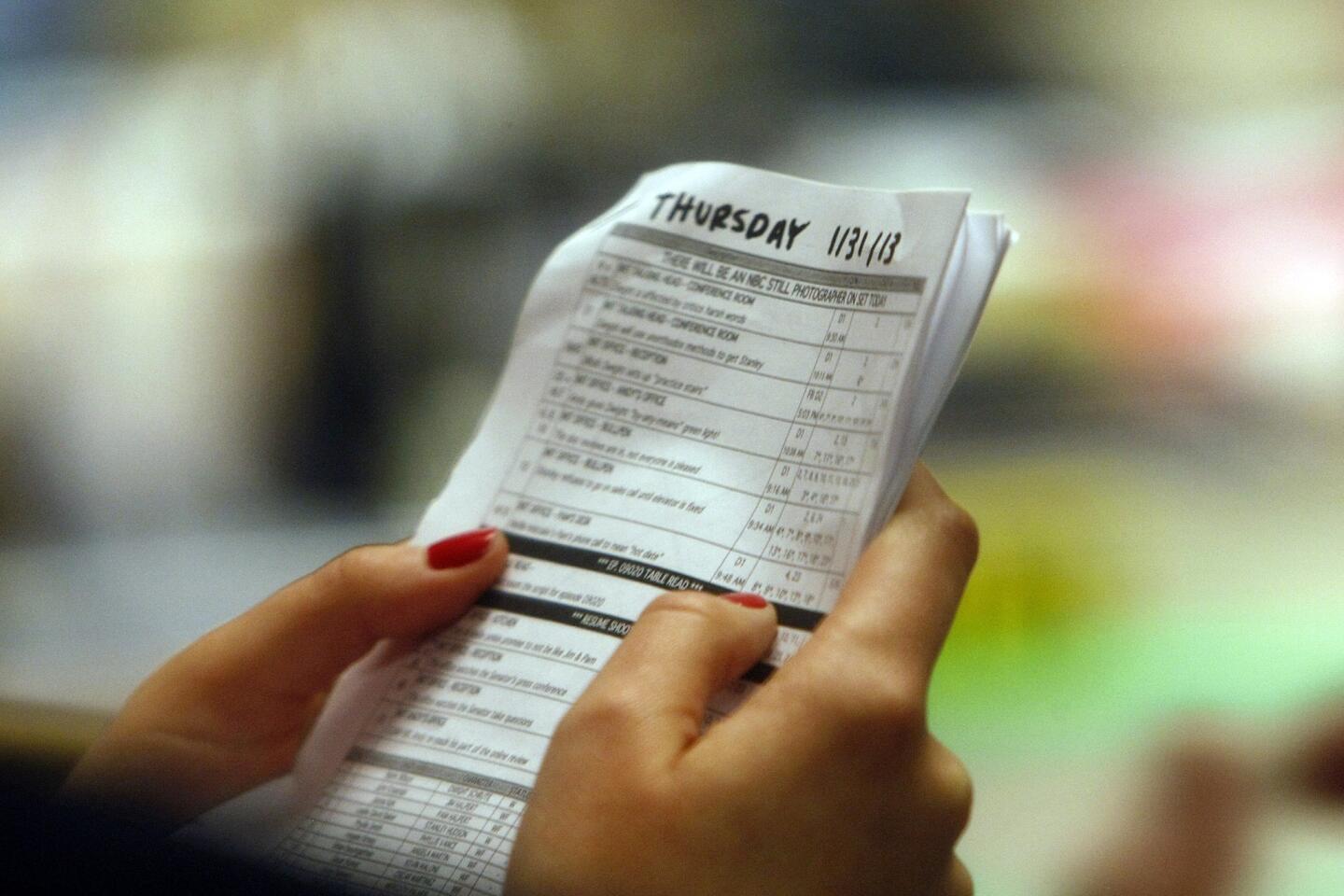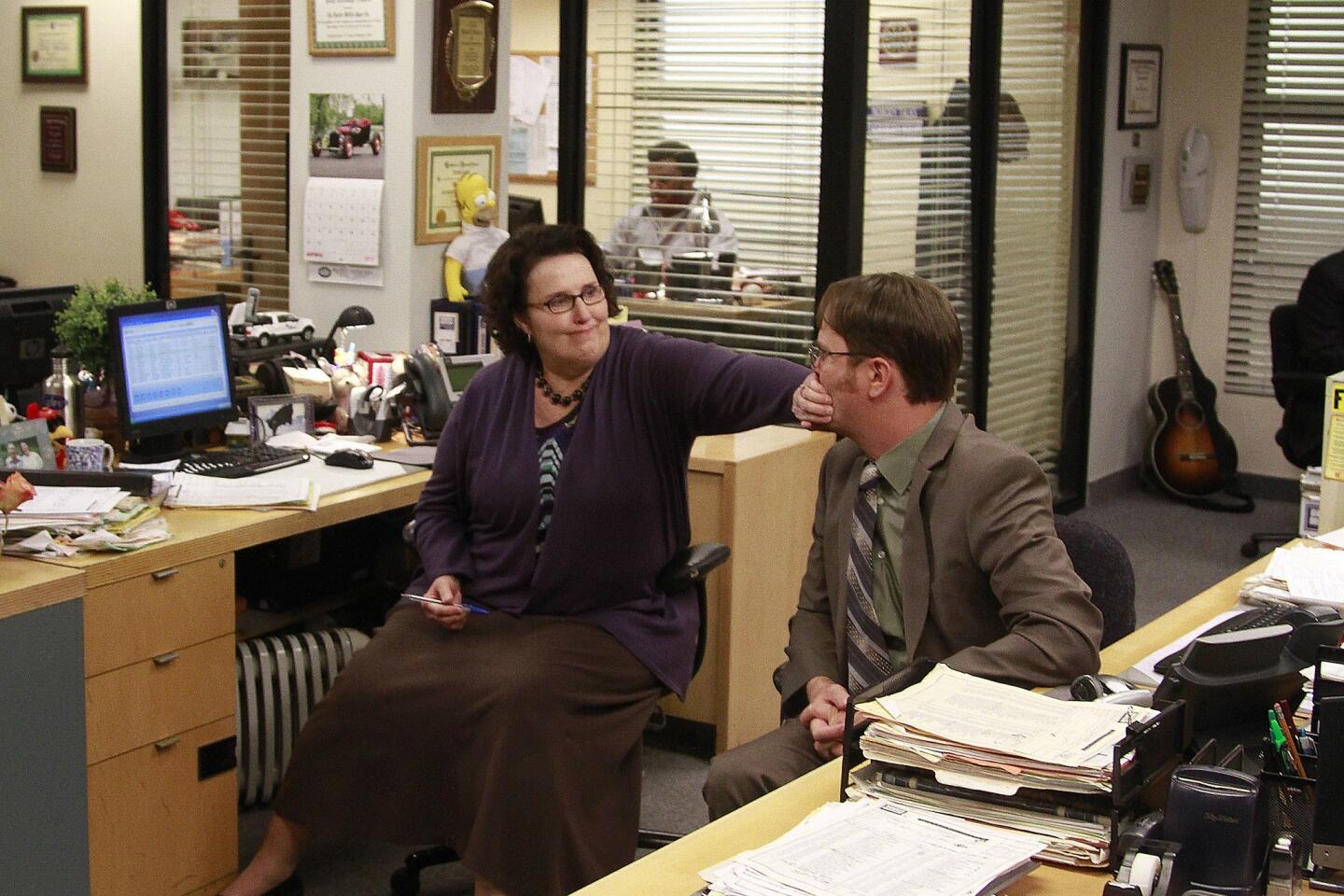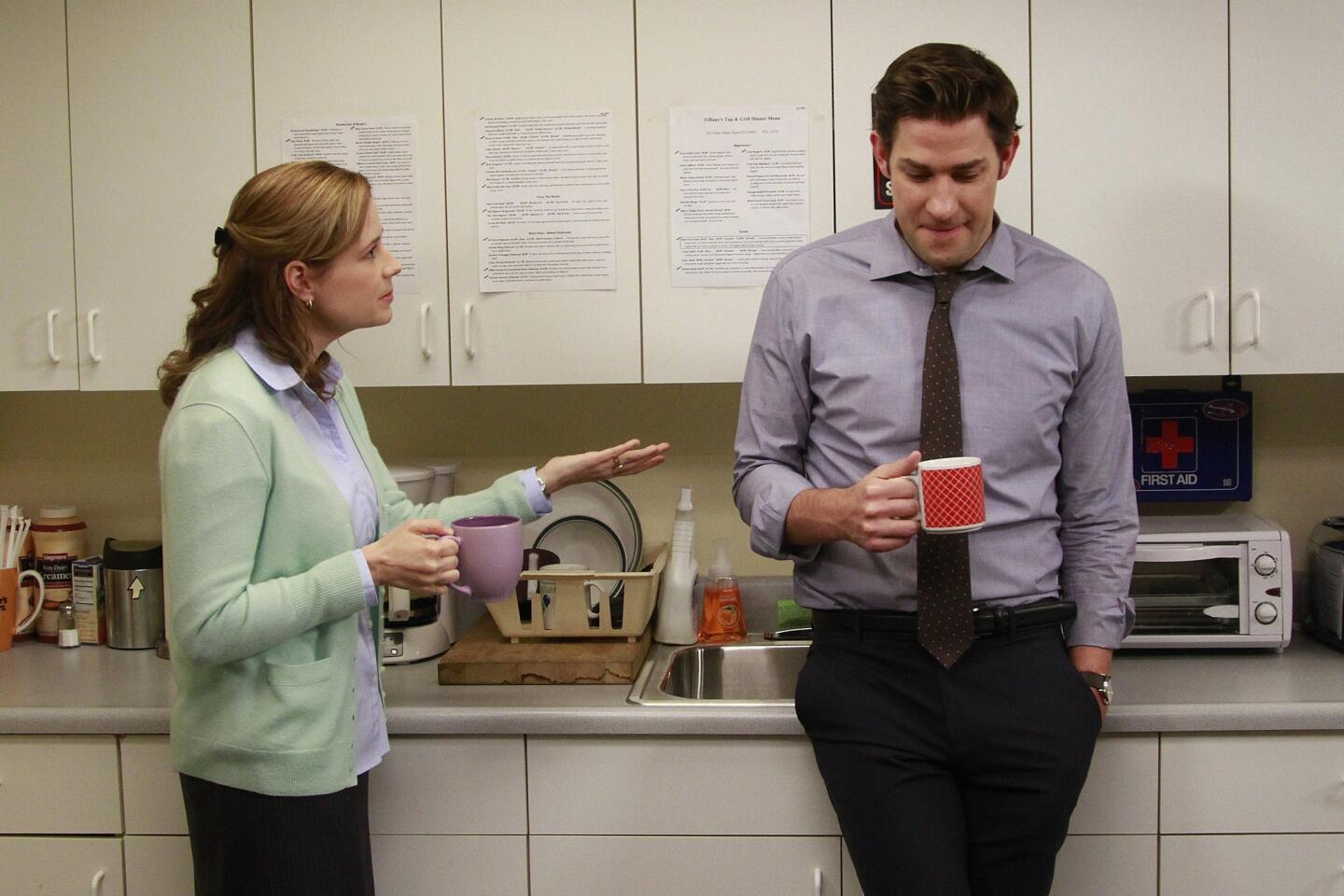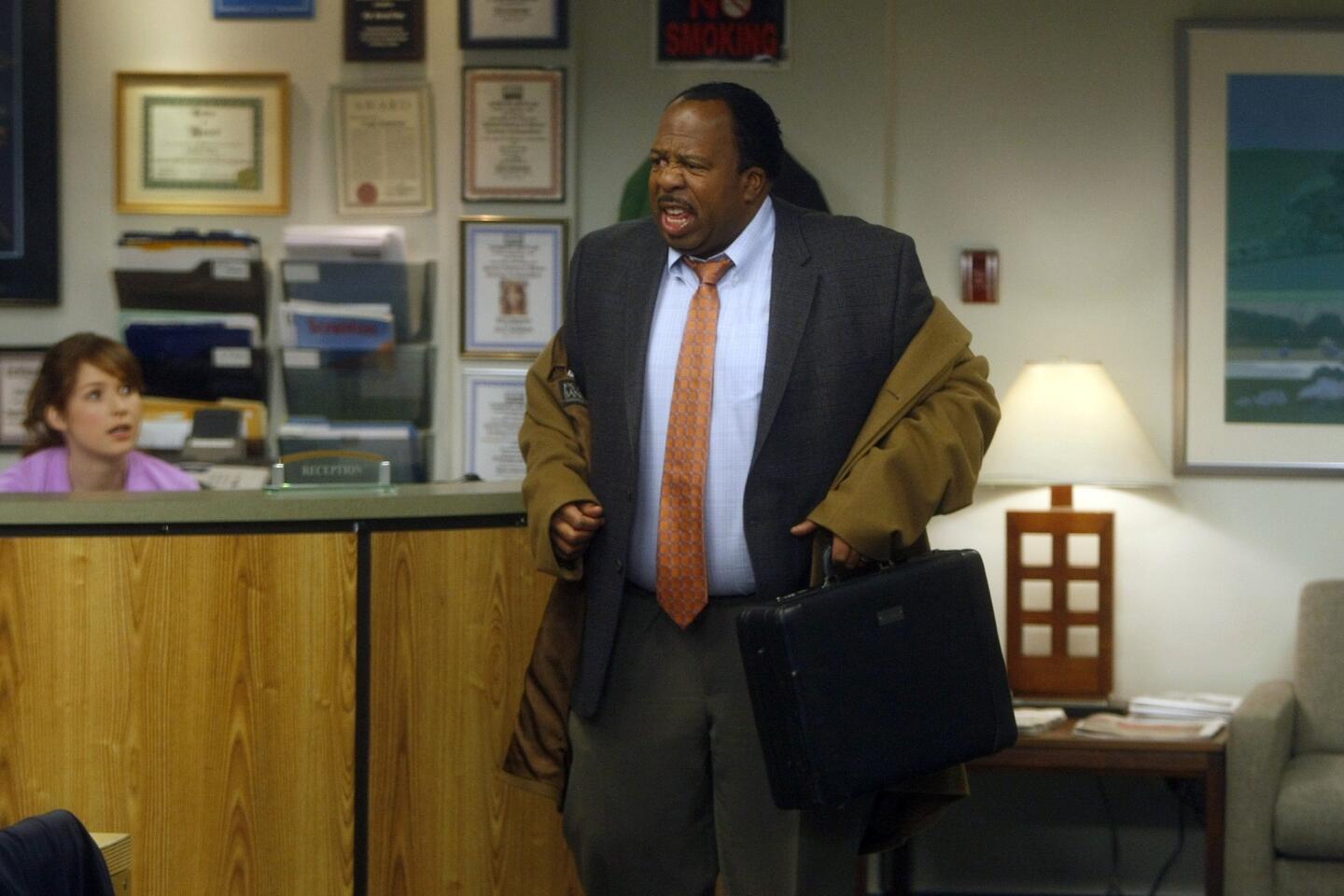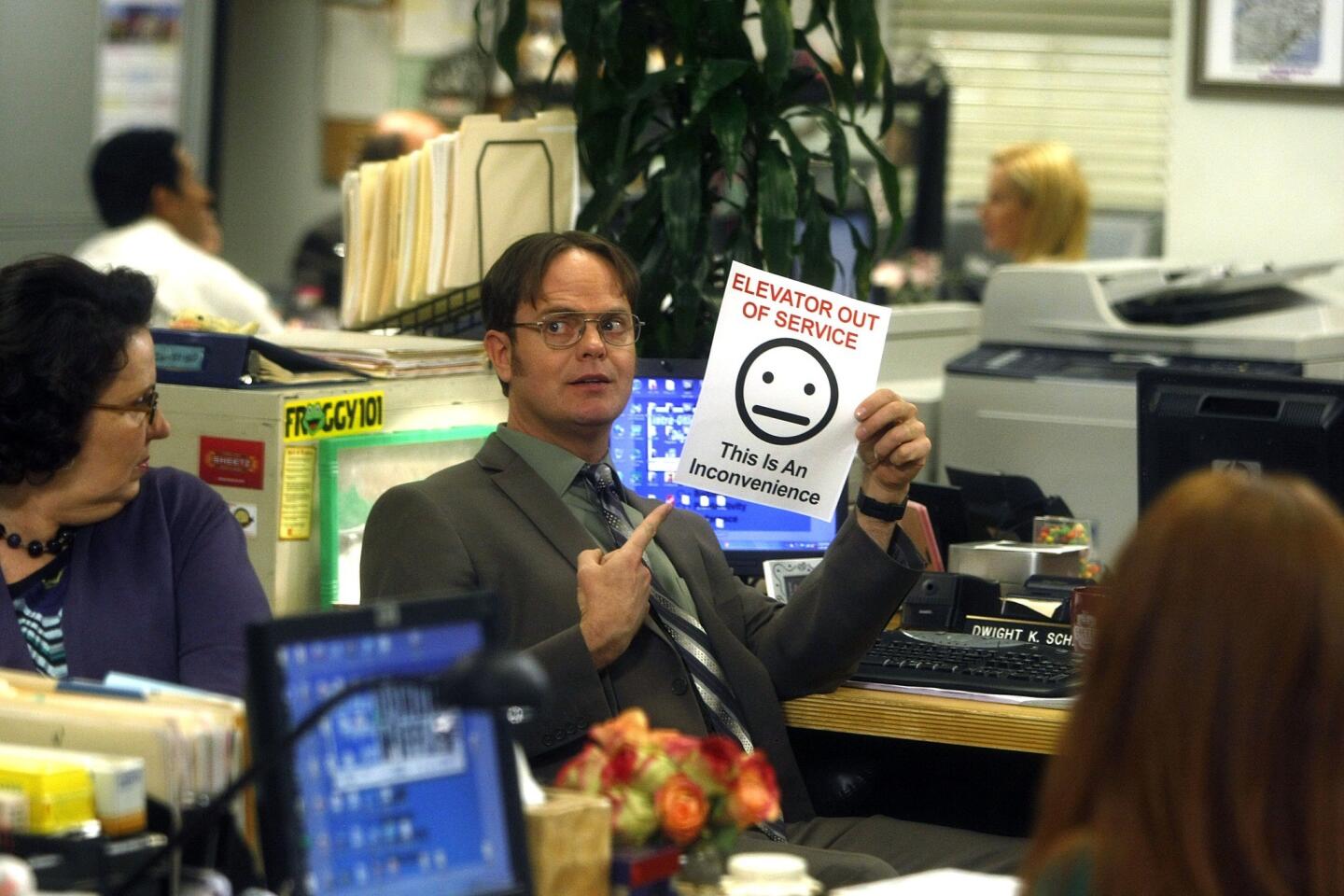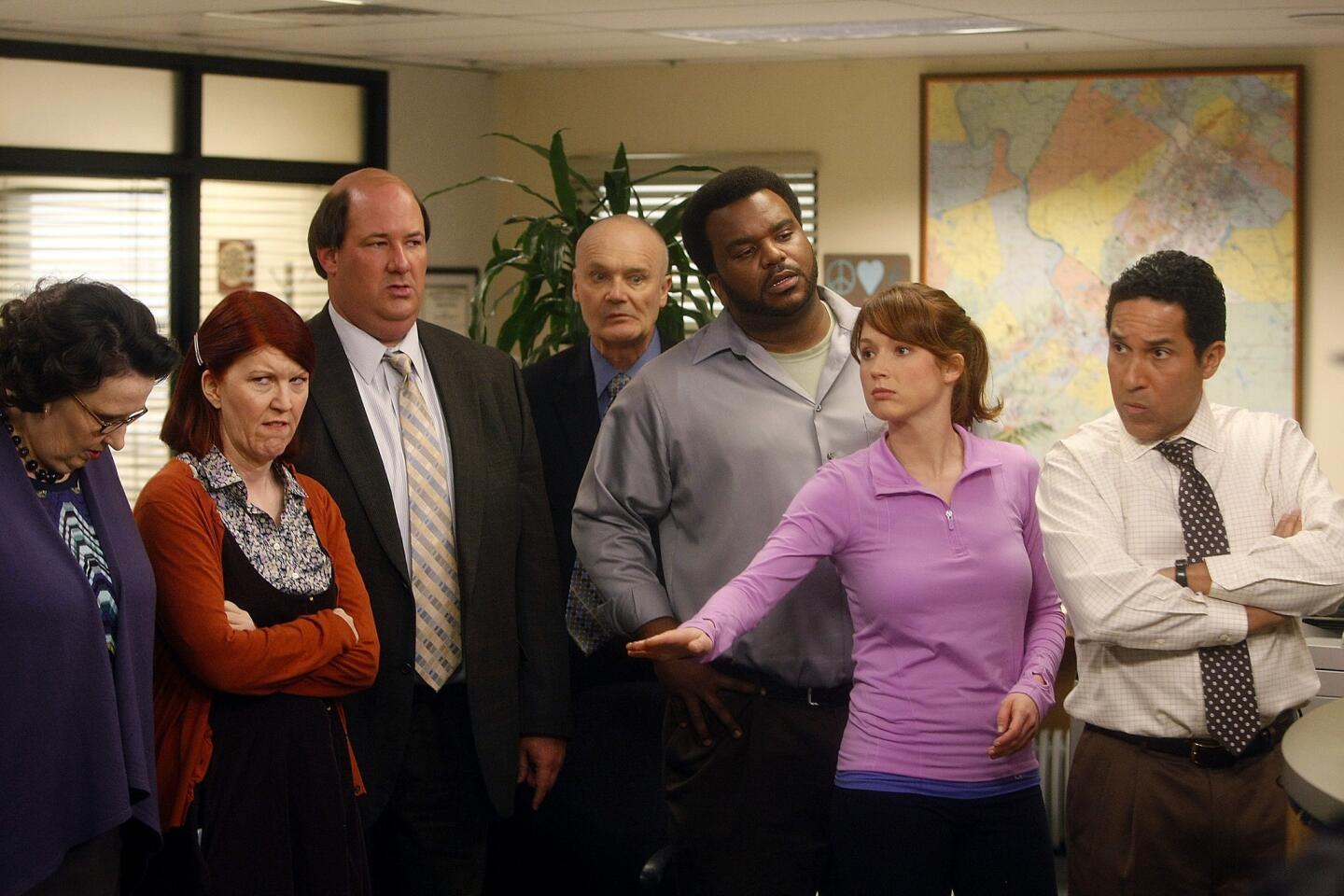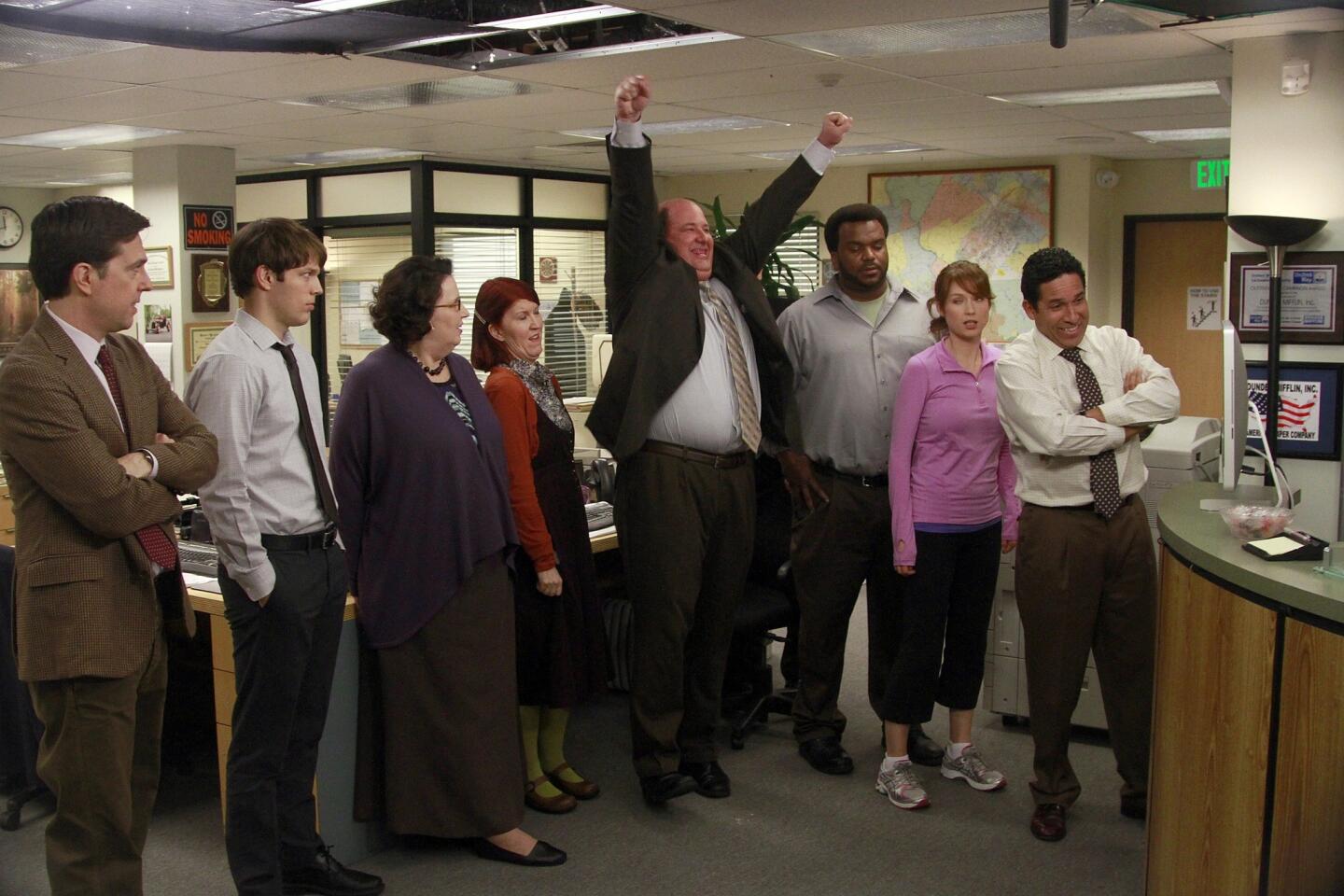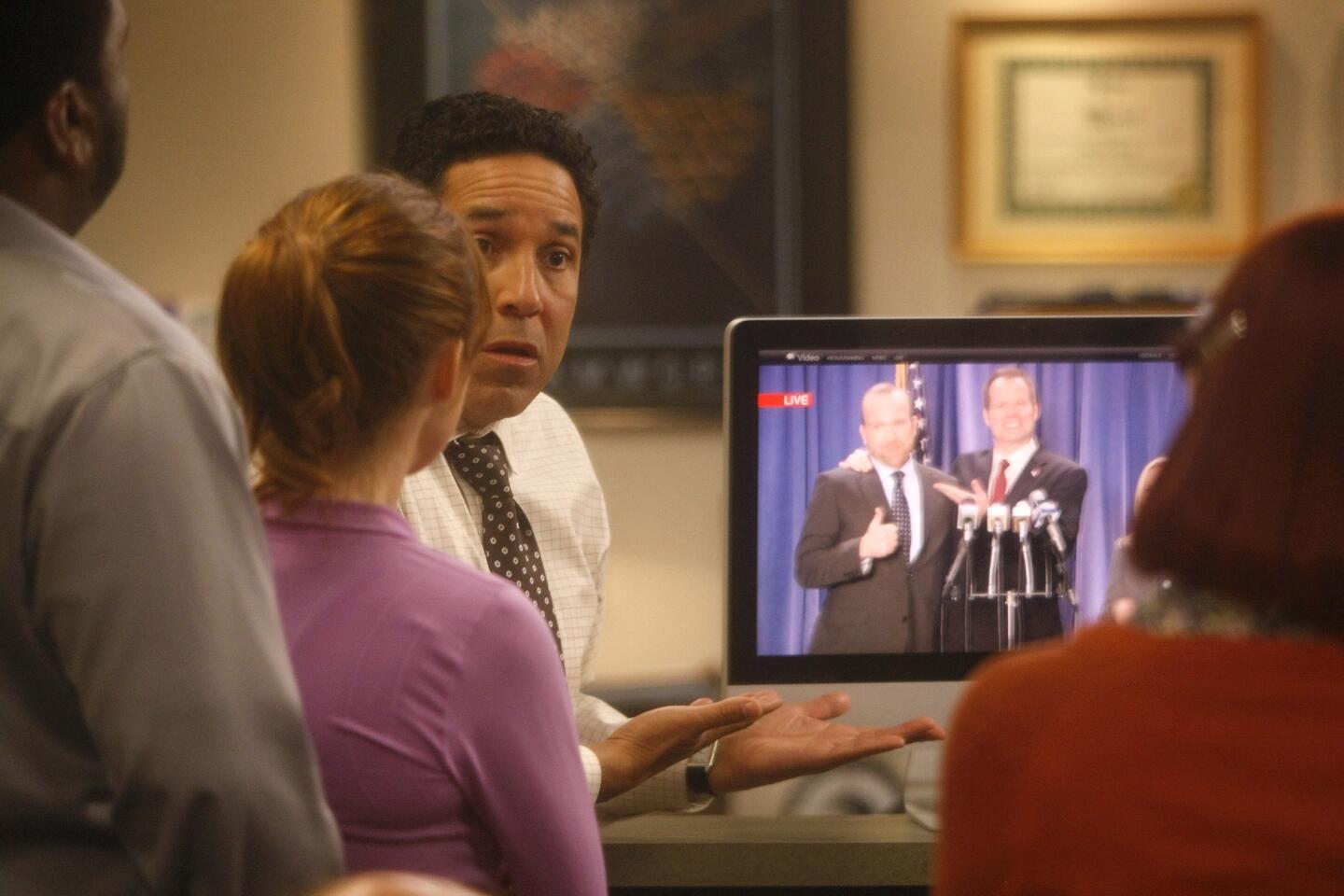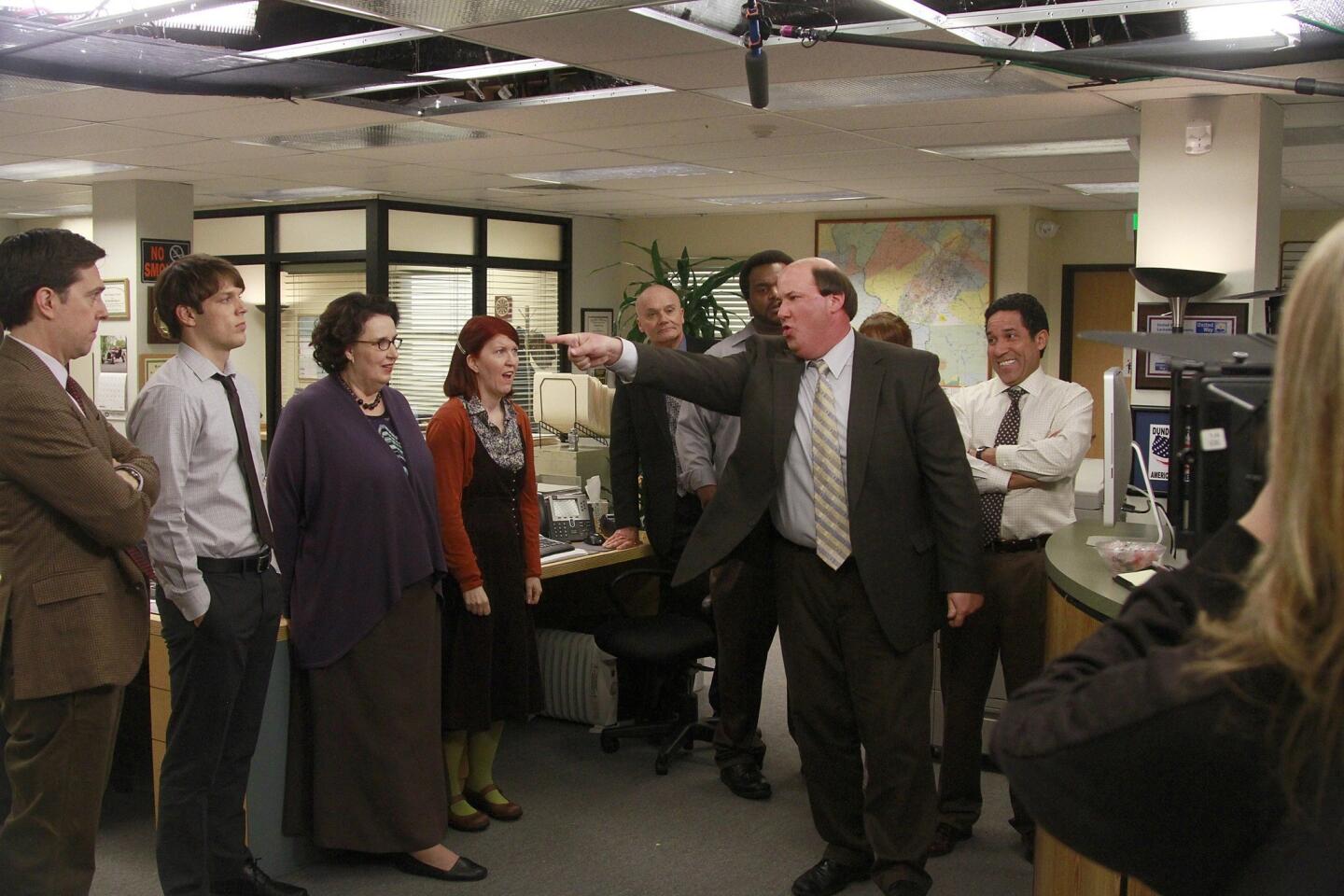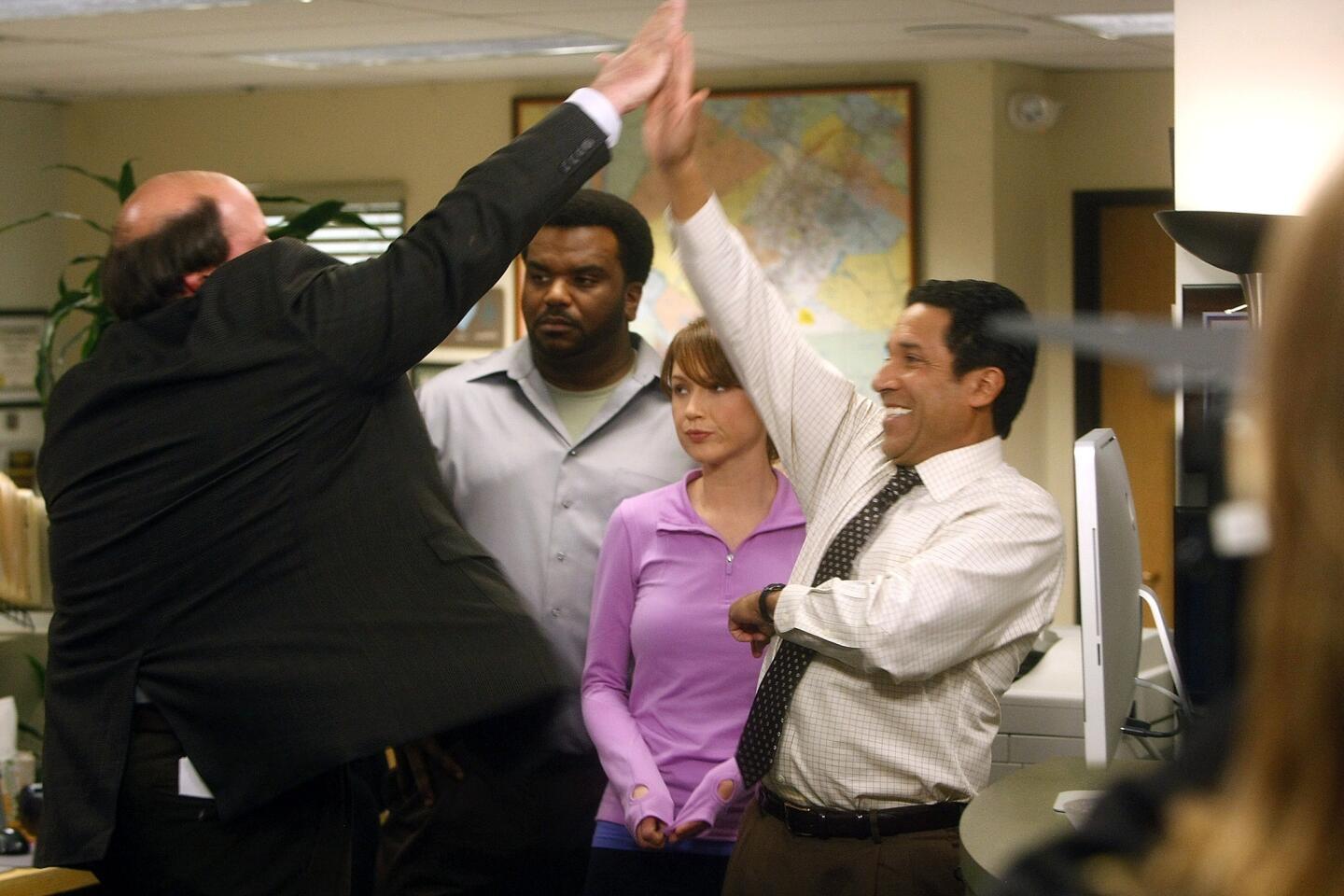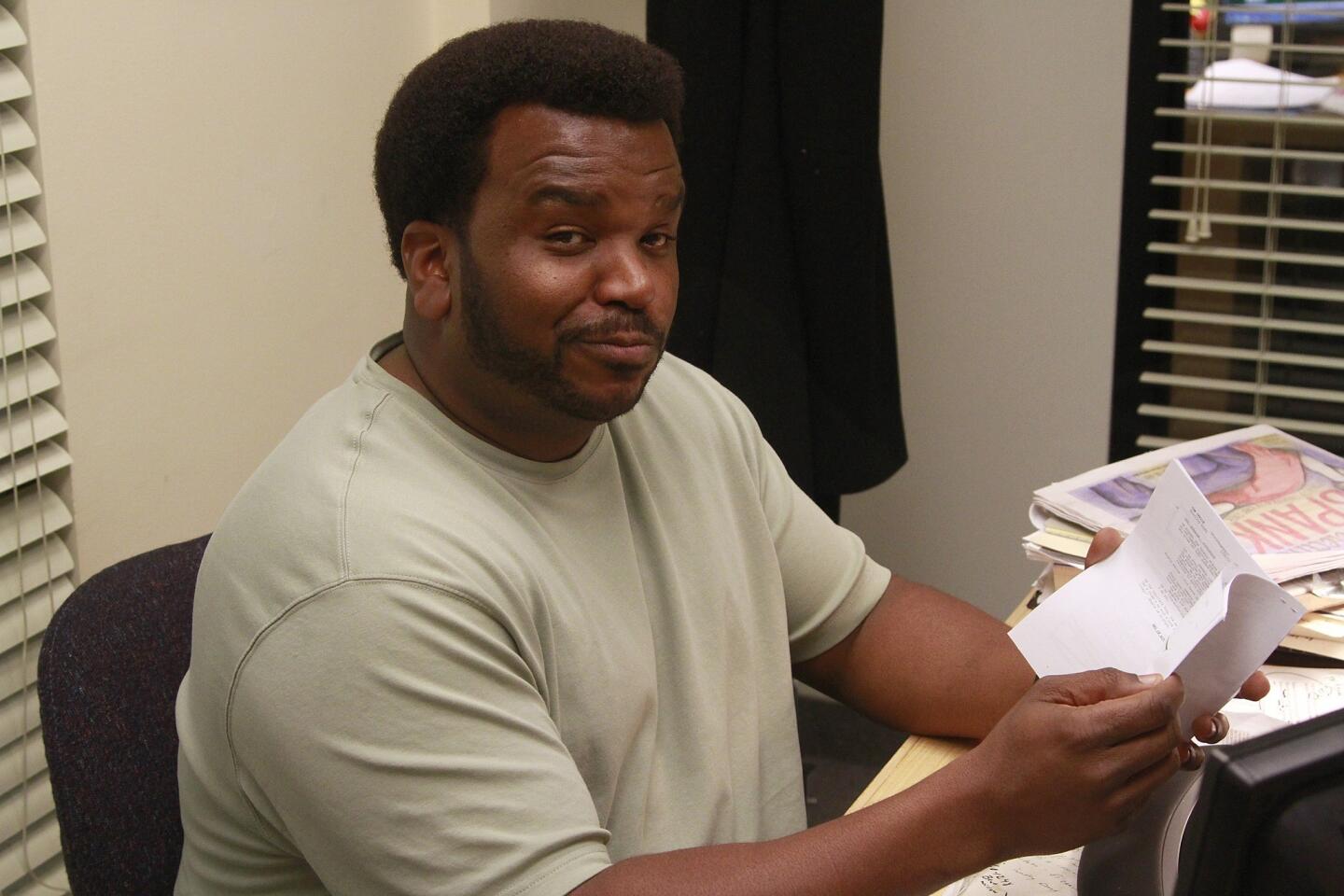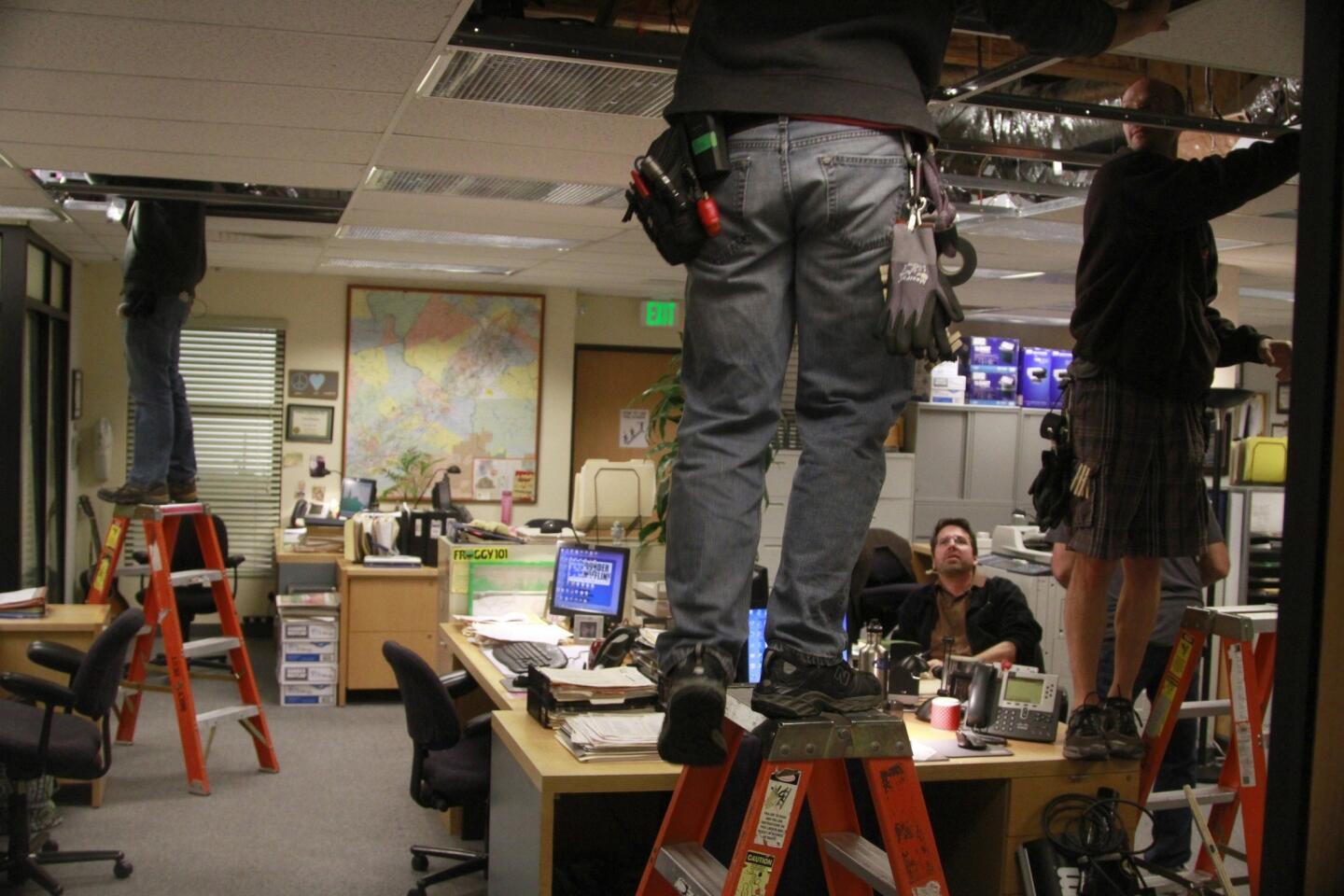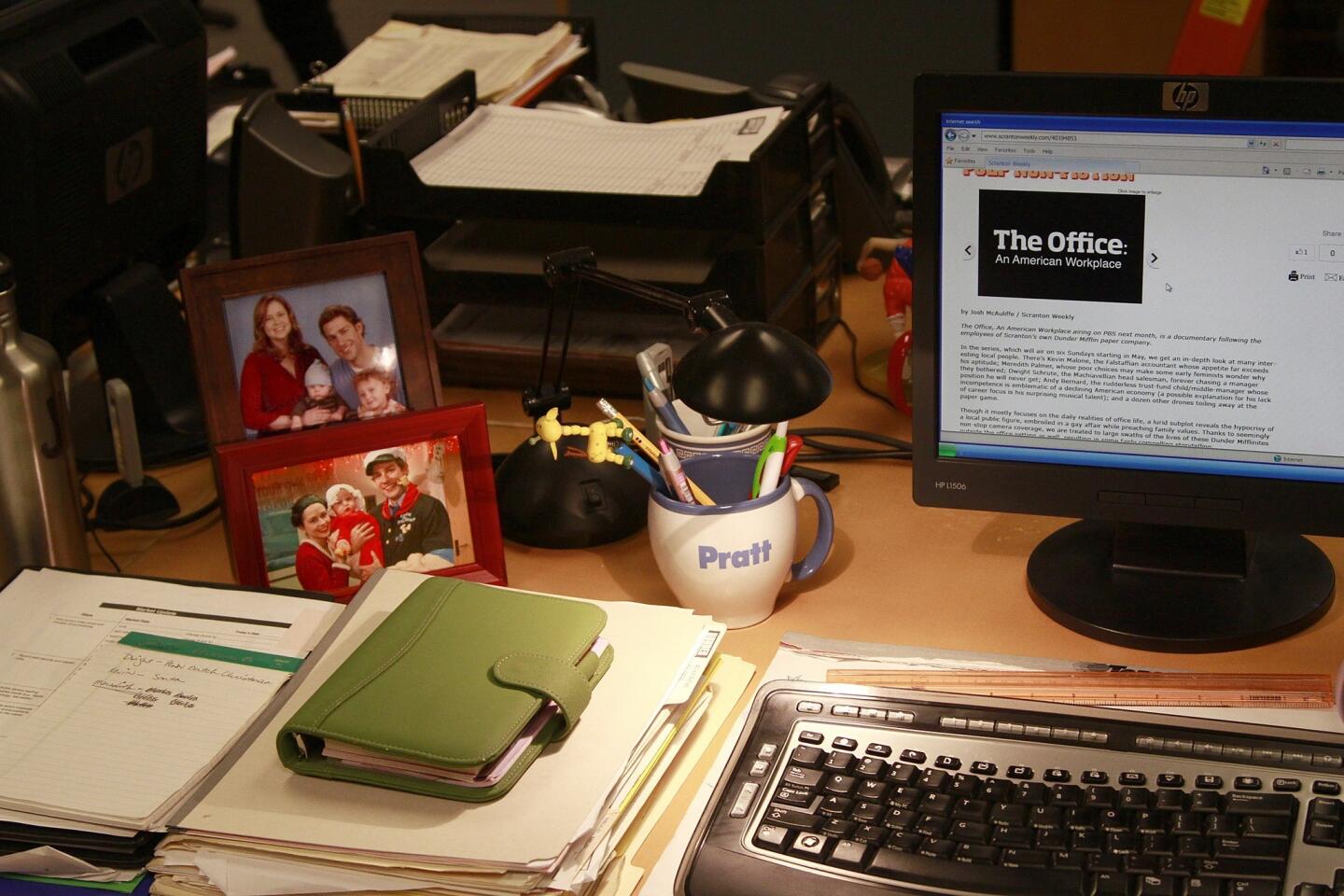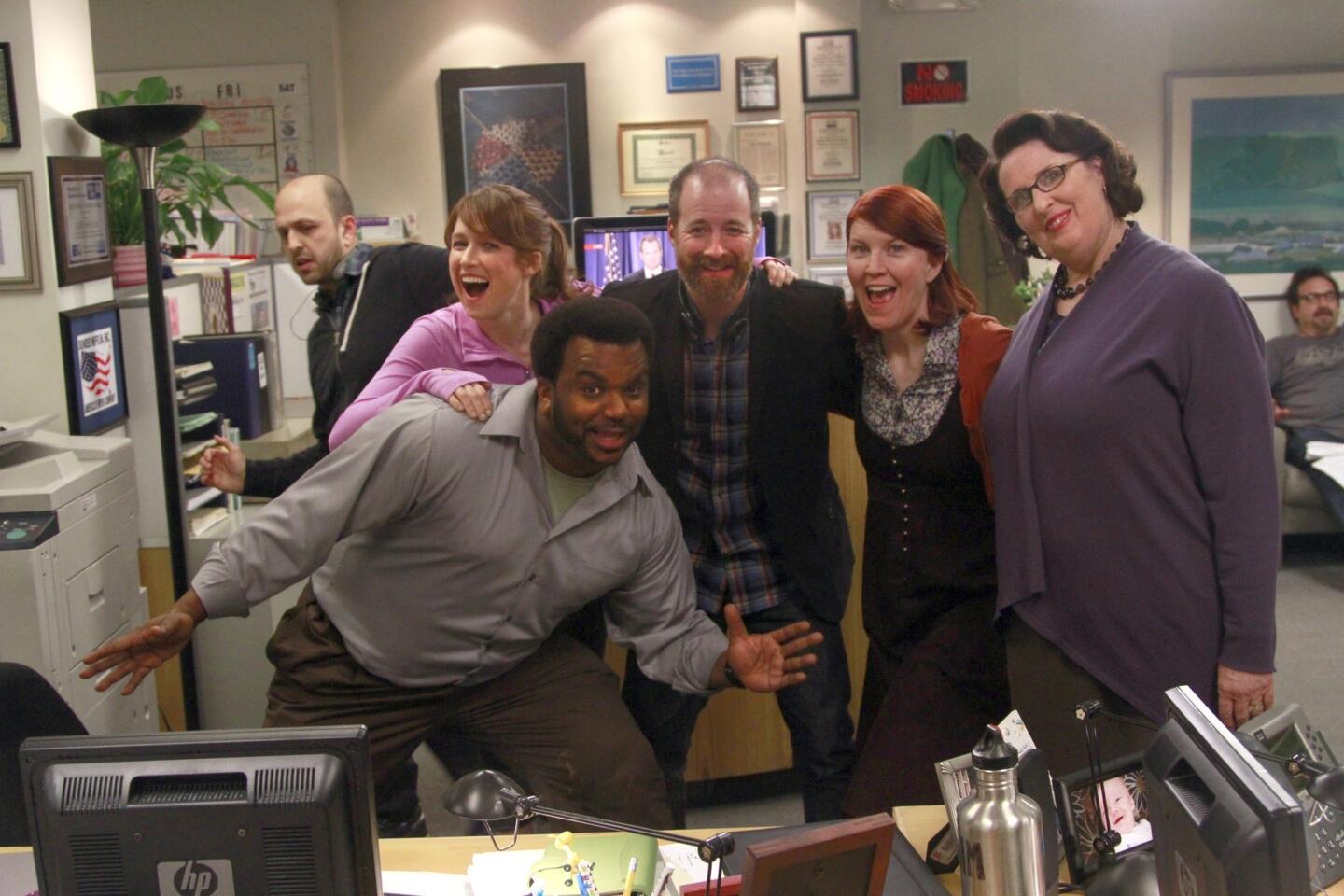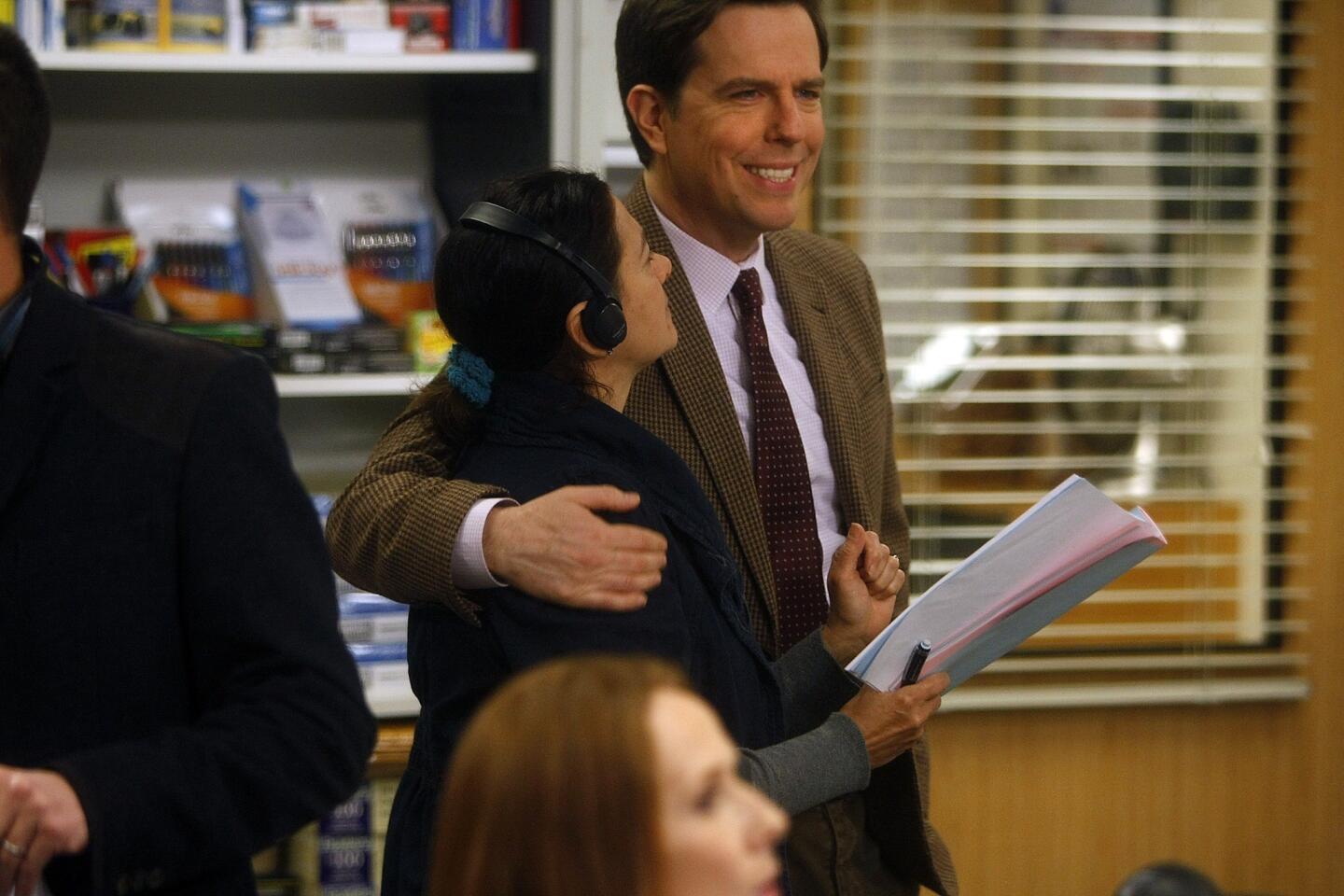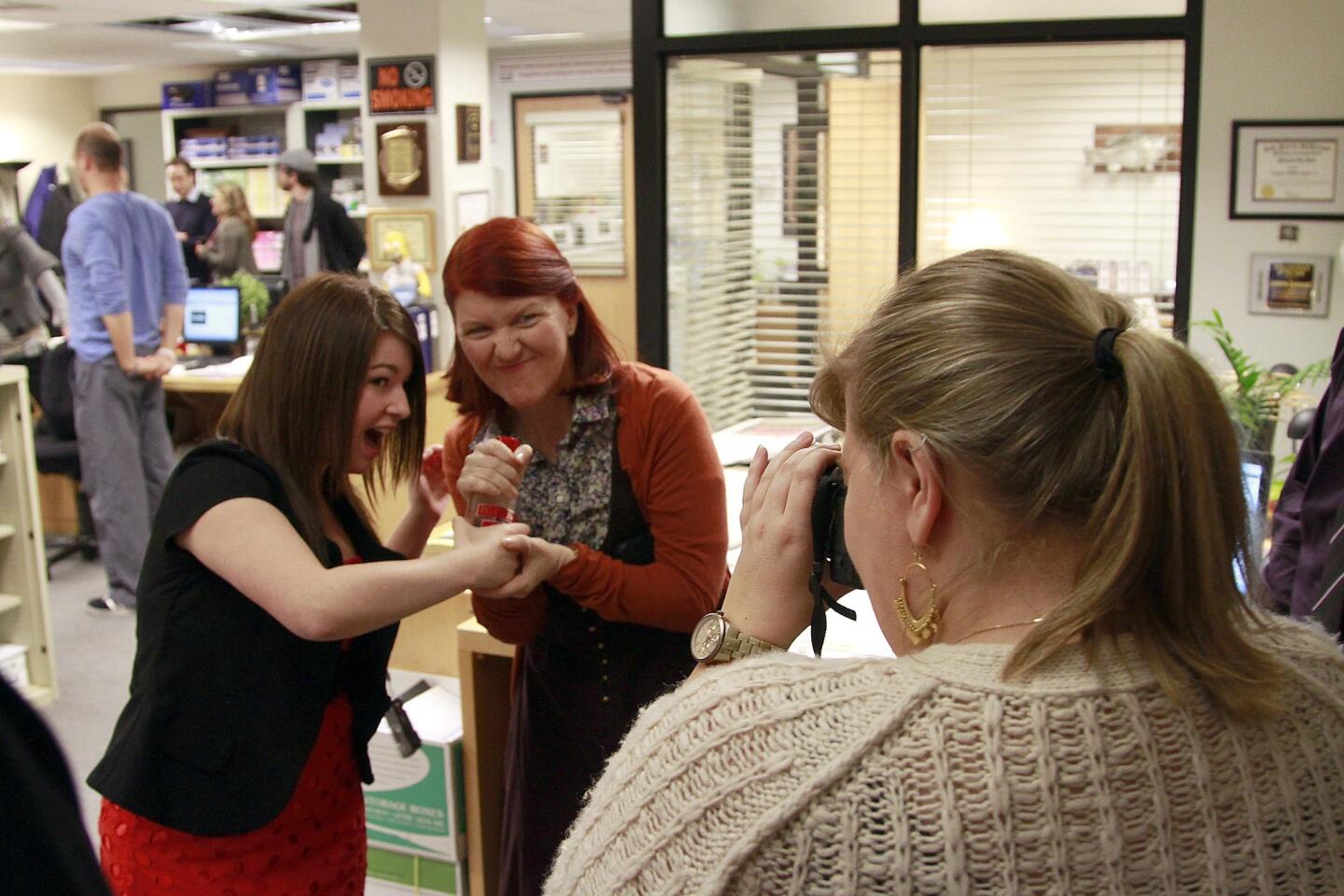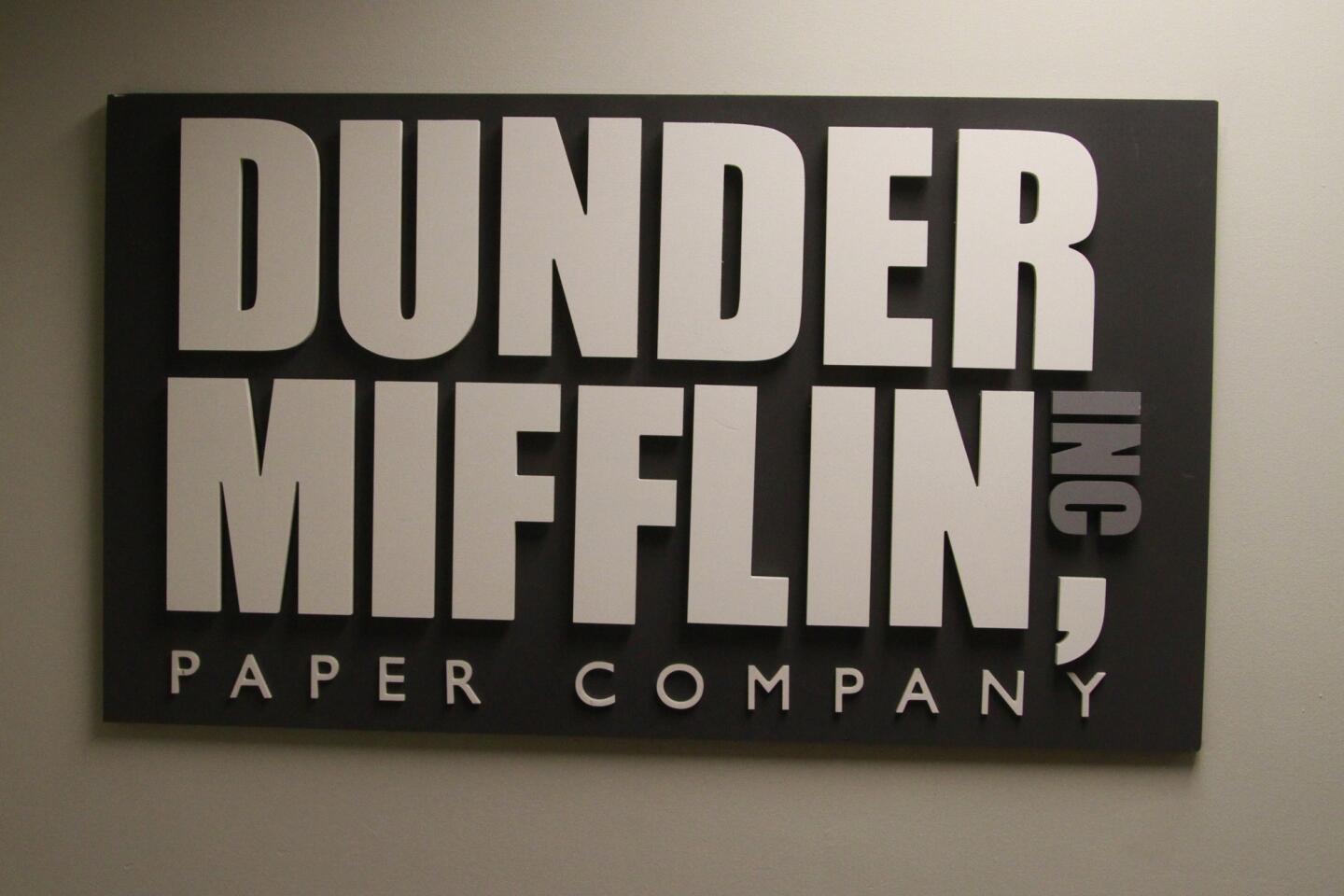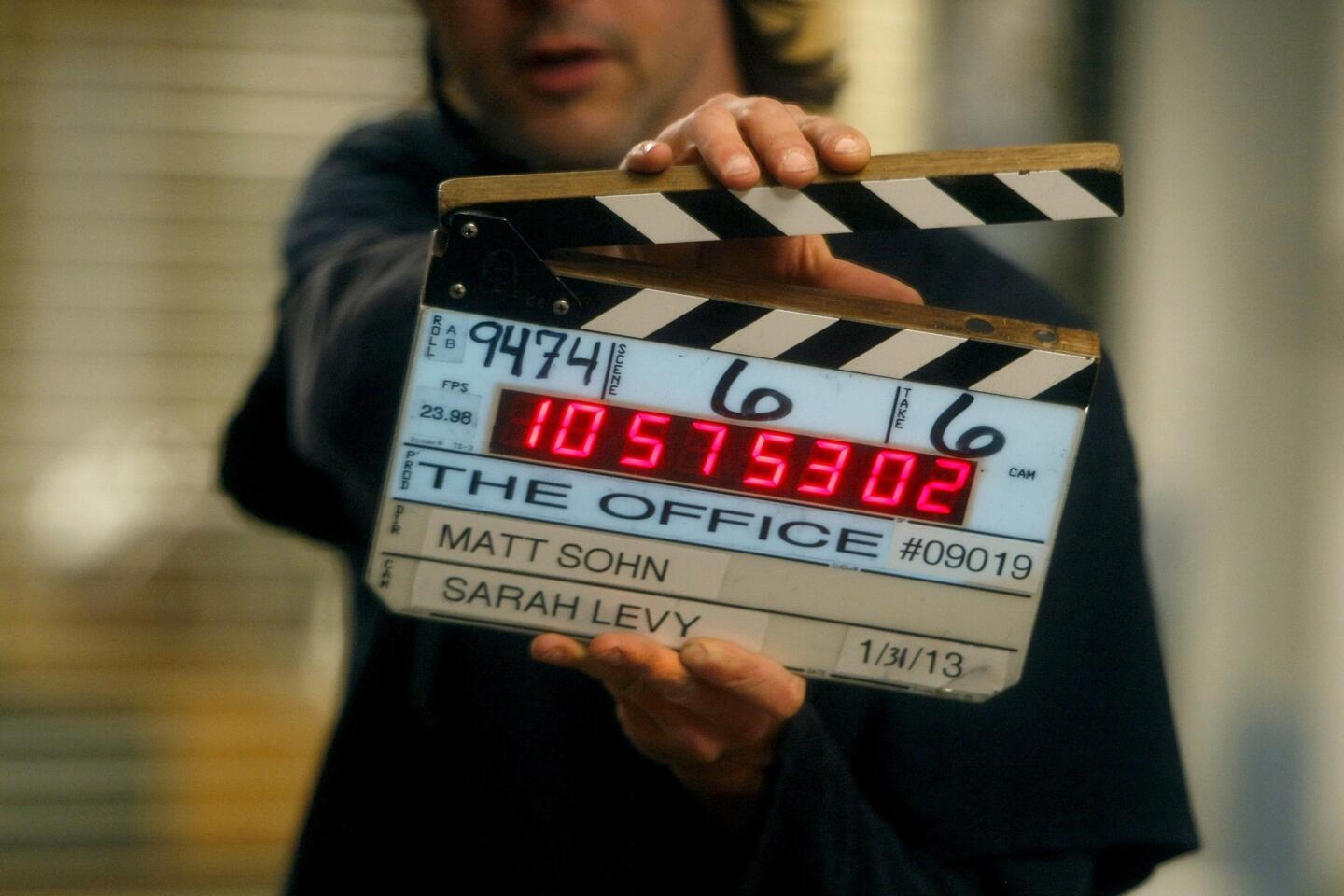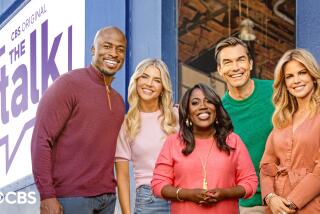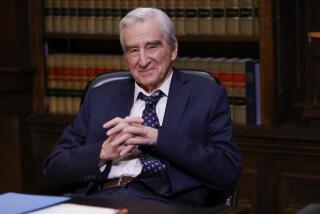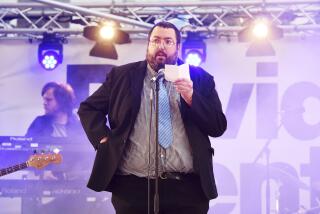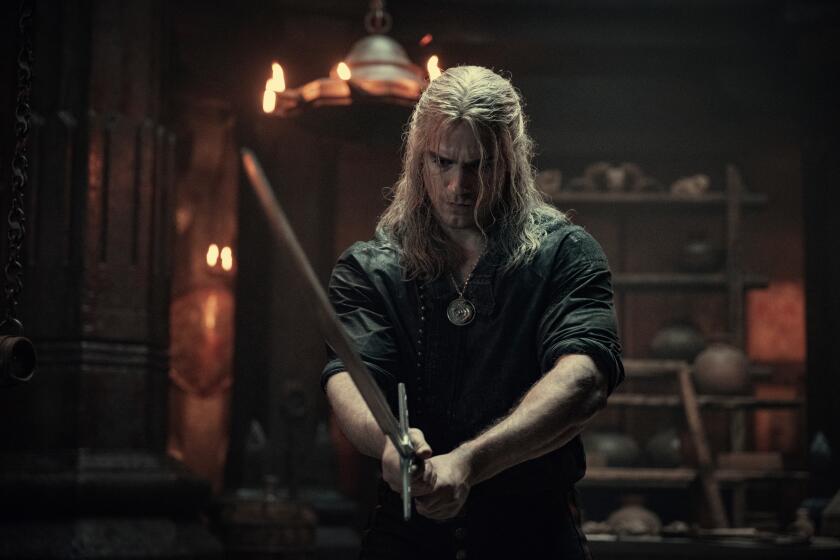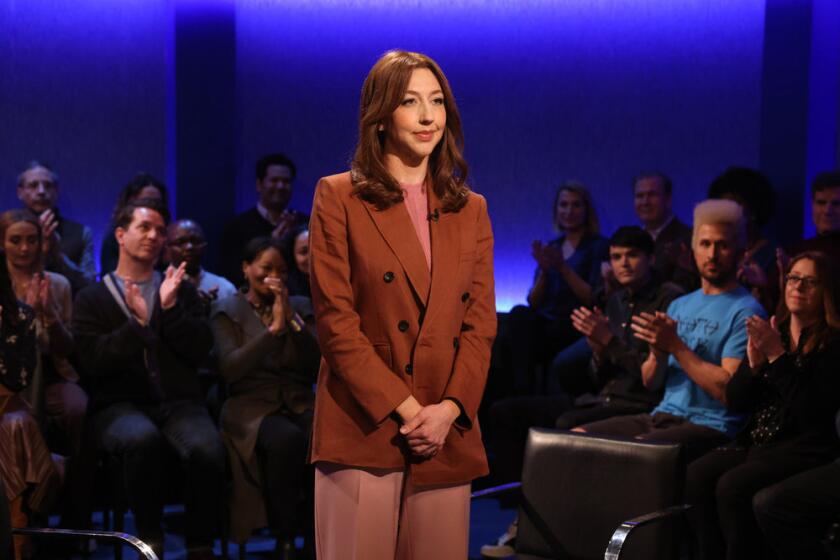Farewell party at ‘The Office’ after 9 years
An old index card reads: Original. Real. Poignant. Those were the first words Greg Daniels jotted down a decade ago as his guide in adapting the daft British TV series “The Office” for an American audience.
The ideas on the flimsy card stock proved enduring. They helped the unconventional workplace comedy about a humdrum band of paper company employees stand up to the radically shifting fortunes of a major network and a punch-to-the-gut exit of a big-name star.
But it’s now time to put the paper away as “The Office” prepares to shut its doors for good on May 16. The shuttering wraps up a nine-year run where much of the time the show functioned like its elite predecessors “Cheers,” “Friends” and “Seinfeld,” as a pillar of NBC’s vaunted Thursday night prime-time lineup.
PHOTOS: On the set of ‘The Office’
Nearly canceled after a lackluster premiere in 2005, “The Office” rebounded and later grew into the network’s highest-rated scripted series, frequently pulling in more than 9 million viewers for its season premieres. An early adopter of the mockumentary style, the show became famous for its fishbowl glimpse at the everyday-looking folks of Scranton, Pa. The show has been widely praised for its clever, understated and often heartwarming humor and has garnered more than 40 Emmy nominations — winning once for comedy series.
Its end signals a major turning point for the struggling network, which recently lost another tent pole comedy, “30 Rock.” “The Office” is averaging a modest 3.6 million viewers this season, down 28% from last year, according to Nielsen. Nevertheless, it remains among NBC’s highest-rated scripted series, and it’s still a big moneymaker on the advertising front.
“It’s very emotional — not to sound too Michael Scott-y,” said Daniels, the series’ showrunner once again after a stint at “Parks and Recreation,” in a reference to the Steve Carell character. “But we’re a family here.”
PHOTOS: Cable vs. broadcast ratings
It’s late January and Daniels is seated in his index card-covered office — in the building that serves as the exterior for Dunder Mifflin, the show’s fictional paper supply company. He’s noticeably preoccupied, making last-minute changes to a script before a table read for the season’s 20th episode (“Paper Airplanes”).
So when he is asked about the final episode, his face meets his right palm.
“I’m worried,” says the 49-year-old writer-producer, whose credits include “King of the Hill.” “I’m worried I’m overthinking it. I’m worried I’m not overthinking it — I’m working on two TV pilots simultaneously. Obviously, the goal is to have it feel meaningful and have a sense of closure for the whole series. That’s what this whole season has been about.”
Birth of ‘The Office’
As with most good deals, the one for “The Office” began over coffee.
Rewind to summer 2001: That’s when Ben Silverman, then an agent with the William Morris talent agency who was poised to start his own TV production company, met with Ricky Gervais at a London Starbucks to talk TV — specifically, his British comedy “The Office.”
Silverman had come across the curious television show, about a group of pathetic employees at the fictional Wernham Hogg Paper Co., while vacationing across the pond.
“I was like, ‘What the hell is this?’” he recalled. “Is it a comedy? Is it a reality show? It was genius.” And he wanted in. After learning the international rights belonged to Gervais, the show’s star and co-creator, and his partner Stephen Merchant, the hounding began — leading to the coffee talk.
“Ricky and I talked for 21/2 hours — about the show, about what we could do in America, and he educated me on what had informed his love of the show,” said Silverman.
The show was born when Merchant enlisted Gervais to expand on a bit he had developed about office managers for a short film assignment. It would be titled “Seedy Boss” — and it would lay the foundation for the BBC Two series. Though it initially suffered low ratings, it would become one of the most successful British exports — with versions as far away as Chile and Israel.
PHOTOS: On the set of ‘The Office’
But British adaptations and American broadcast networks didn’t have the best score card at the time (e.g. “Coupling,” “Men Behaving Badly”). When Gervais presented Silverman’s proposal to Merchant, it was greeted with caution.
“I was like, ‘Yeah, we should give it a shot,’” said Merchant. “But the chances of it actually happening, and the chances of it succeeding if it does happen, are very, very, very, very slim.”
And initially, it seemed he was right. An early plan for it to land on a cable network was a bust — at the time, BBC America was already running the original series.
But Kevin Reilly, then at NBC, would be its rescuer.
“I felt right from the start that even though the show was different — the pacing of it, the idea of a mockumentary, the narrative structure — that it was still rooted in an age-old half-hour convention, which is an office place,” said Reilly, now entertainment head at Fox. “I knew it could succeed in broadcast ... eventually.”
Of course, his instinct would have to contend with Jeff Zucker, then NBCUniversal’s chief. Zucker hadn’t been too keen on the show in its pilot stage or after its low-rated six-episode first season. The screening process for shows began for the next season’s lineup — and spirited debate followed.
“Let’s just say there were very senior members of the NBC brass at the time who were quite clear that this was not going to be picked up again,” Reilly said.
PHOTOS: Cable vs. broadcast ratings
There was a frenzy of behind-the-scenes meetings with many senior executives, said Reilly. “It was an extraordinary time, because NBC was very structured at that point. Because I was a new guy and because NBC was in the process of its wheels coming off, it just became very political and very supercharged.”
Daniels, the American adaptation’s captain, wasn’t exempt from the mess. He had to pitch Reilly on ways to boost ratings in the second season — part of the plan included making Michael Scott, played by Carell, a central character with a little more heart.
“I had a list of all these moments that I wanted to do,” Daniels said. “Like, he should give someone really good advice, he should make a great sale — they all became episodes in Season 2. We wanted to show that the employees actually did like him. And the Jim and Pam drama really heated up.”
The series made it onto the fall schedule in 2006 — just as Carell’s movie career was picking up — and avoided hitting the shredder from then on.
“The Office” was one of the first shows available on iTunes and consistently one of the top performers on the site. Its early recognition of tapping into Web-savvy young consumers was one of its hallmarks.
Before its second season, stand-alone webisodes were made available on NBC’s website. The ratings would pick up, and the series would go on to score an Emmy in its second season for outstanding comedy series.
Zucker, now onboard with the show, would even commission supersized episodes. At its height (its fourth season), the show touted a respectable 7 million viewers.
“I felt very strongly that as the network was going down, it needed to stand for something,” Reilly said of his reason for lobbying for it. “To me, ‘The Office’ represented a new version of what NBC could stand for, which was quality and smart comedy.”
Silverman, who would eventually go on to replace Reilly at NBC, had wanted to stretch it further — suggesting spinoffs from as early as Season 3, when another office branch was introduced. One proposed spinoff, which would have centered on Andy Bernard (Ed Helms), morphed into “Parks and Recreation.” Another centered on Dwight (Rainn Wilson) would get dropped.
“It felt like there were so many things that were going to trip it up along the way,” Merchant said. “So when it was finally on its third season, it was like, ‘How did we get here?’ And as it’s about to wrap up in its ninth season — its ninth season! — it’s like, ‘No, really, how did we get here?’”
Walls come down
Part of the final season’s conceit has been tearing down the fourth wall. At last, TV viewers get to see the documentary crew that has been skulking around Dunder Mifflin all these years. Their documentary is set to air.
Inside the cluttered Dunder Mifflin set — tucked away in Van Nuys, a mere 2,700 miles from Scranton — the office workers are reading the first reviews of the documentary of their workplace. Not surprisingly, in the scene, Phyllis Smith, who plays congenial Phyllis Lapin-Vance, is having computer problems and is unable to scroll through the website.
“How do I get this up?” she asks. She catches herself: “That’s what she said!” — a nod to the fan-favorite one-liner popularized by Michael Scott.
PHOTOS: On the set of ‘The Office’
If the fictional office appears mundanely offbeat on TV, the real set dynamics are not much different. On a recent day on set, Helms’ Andy was reading Deadline.com, while Creed Bratton, who plays creepy Creed, was killing time at his desk by playing his guitar. And Leslie David Baker, who plays crossword puzzle-loving Stanley Hudson, was talking about his next vacation and maybe how he’d like to eat a pretzel.
On this day, a group of hard-core Canadian fans is visiting — trying not to squeal as the scene finally gets underway.
“Red alert! Red alert! The reviews are in! I repeat: The reviews are in!” shouts Helms as Andy, drolly charging through from the office kitchen into the main space. The characters latch onto every biting word.
The real-world reviews for “The Office” of late have been just as captious. Although some of the criticism had been brewing before the Season 7 exit of Carell, it only intensified with his departure.
The cast doesn’t pretend it was a smooth transition.
“It was a tremendous blow to the show,” says Wilson, who plays power-obsessed Dwight Schrute. “It took us awhile to find our footing. There’s been a number of bad episodes but also really good ones.”
Daniels admits that ending the show with Carell’s exit might have been the way to go. (Carell declined an interview for the story.)
But other cast members were under contract, and “The Office” remained one of the network’s top-rated Thursday shows — so it carried on.
There would be more changes: Mindy Kaling, a writer-producer-star of the show, left at the end of the eighth season to headline her own comedy on Fox; Wilson was set to split off for his said spin-off; meanwhile, John Krasinski, who plays sardonic nice guy Jim, and Helms were juggling burgeoning movie schedules.
“It’s like any other thing in life, any experience — from listening to a song to watching ‘Les Misérables’ to the best job of your life: It has to end sometime,” Krasinski said.
The key cast members agreed to return for a ninth and final season — allowing Daniels to dump an idea of a rebooted season that would have introduced a heap of new characters. It’s an ending that’s bittersweet for longtime viewers.
“One could really feel the executive suits just sort of dragging the lifeless body of the show across the finish line,” says Andy Greenwald, who writes about the show for Grantland.com, an online sports and pop culture magazine. “But I do think the show, as a whole, has made a mark on the American TV comedy by paving the way for a lot of the intelligent, witty and urbane humor we see in some half-hours today.”
A real strength of the show has been its use of writer-performers — something Daniels has fully exploited. Three members of the cast have pulled double duty: Kaling, who portrayed bubbly pop culture nut Kelly Kapoor, Paul Lieberstein (who would also serve as showrunner for seasons 5-8) playing the mumbling human-resources manager, Toby; and B.J. Novak as temp-turned-sleazeball Ryan Howard.
“It’s not an easy job,” Novak said off-campus while directing an episode of “The Mindy Project” (Kaling’s series). “You can’t do 99% of the things you think would be funny because they wouldn’t happen, and you can’t do 99% of the things that would happen because they aren’t funny. You have to find the delicate balance of where truthful and funny intersect.”
What’s next at NBC?
The big-money question is how flailing NBC will rebuild its Thursday comedy lineup in the coming year: Will it stay in the quirky, faster-paced comedy arena or steer a new path?
“There’s a lot of talk of us wanting to move in the more ‘broad comedy’ territory,” said Jennifer Salke, the network’s president of entertainment. “We’re in the ratings business. Our job is to deliver higher ratings. Our hope is that with our new comedies, we can slowly rebuild the Thursday night lineup that is not only critically acclaimed but can deliver on a higher rating point.”
The network gave a trial run this season to Matthew Perry’s comedy “Go On.” The network also put “Community” back in its old Thursday digs after much delay. But their fates remain uncertain — and should they stay, there’s no telling whether they’ll remain on Thursday.
The network also has a cavalcade of comedies under review for the 2013-14 season — with as many multicamera formats as single-camera. “Office” alum are scattered throughout the roster — from writers to its stars.
PHOTOS: On the set of ‘The Office’
The comedy drawing the most buzz — and already earning a spot next season — is NBC’s Michael J. Fox project, which is loosely based on the former “Family Ties” star’s own life and experience dealing with Parkinson’s disease.
Daniels has two pilots in the works at NBC for the fall, serving as a producer — a responsibility he acknowledged was getting shortsighted by his focus on “The Office’s” swan song. He had originally wanted to pass off the final season’s showrunner duties to Merchant, but Daniels ultimately took the reins.
“I couldn’t not come back,” Daniels said a few months later, once filming had wrapped. “This was my life. And it’s weird, because I feel like I’m back in Season 2, where every episode matters. Where you’re looking for reaction.”
Daniels “carded out” the final episode while on a family trip to Hawaii. He took all his “final episode” notes with him, a huge pile he had contributed to over the years.
He was now editing down the last episode. And the anxiety had set in.
“I want to make an event out of this goodbye,” he said. “I want it to feel satisfying. I want it to be memorable, you know?’”
That’s what she said.
More to Read
The complete guide to home viewing
Get Screen Gab for everything about the TV shows and streaming movies everyone’s talking about.
You may occasionally receive promotional content from the Los Angeles Times.
